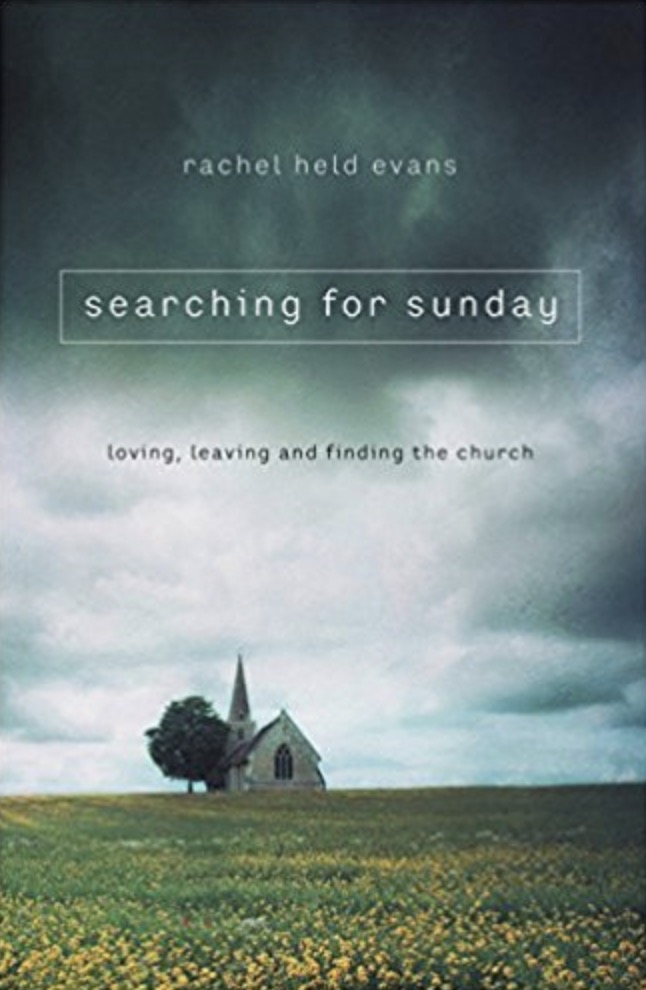
In the 70’s, we boomers raged and sneered about the Generation Gap. Those we now call ‘the greatest generation’ appeared to us youngsters as blind to the present and busy with traditions and values that had nothing to do with what we saw around us. Rachel Held Evans’ latest book reminds me that the gap is as wide or wider than ever before, especially in the American church. Her story is of a search to find a church where she can have honest doubts and authentic relationships. As she explores, the local scene looks bleakly hypocritical and the worldwide church looks bleaker. Although Evans is in her thirties and I am in my late fifties, her account of buying into faith and growing out of faith rings true to my experiences as a young woman. The personal journey she describes is told on the scaffolding of the seven sacraments of the older Christian traditions: Baptism, Confession, Holy Orders, Communion, Confirmation, Anointing of the Sick, and Marriage. I sometimes lost track of why she organized things this way, but that didn’t detract from the narrative or the useful observations of the book.
Most of the time this book bugged me. I am glad to be bugged. It is similar to my experience teaching sixth grade Sunday school, where I can predictably hear, twice or so a year, an angsty twelve-year-old ask if pets go to heaven. Since the question is always posed sincerely, the discussion must take as long as it needs to take. I search to clarify the question and to find out if there is recent pet grief in the picture. Eventually, I say that there is Biblical evidence that God loves all the animals created (as God told Jonah at the end of his story and other places) and certainly cares about anything we hold dear. I can say that there is little in the scripture to give us insight into God’s plan for animals after their deaths. I fish for ways that my students already trust God to be caring and gracious. I hope aloud that we (meaning they) can trust God to have a loving plan in place even if we do not know the details. I hope I do this as well as I do it regularly. I can also count on a parting shot from the student that goes something like this, “Well, I certainly wouldn’t believe in any God who would sent Fluffy to hell.” It bugs me.
Rachel is not twelve when one’s job is to figure out fairness. At the beginning of the chronicle, she is an adolescent and her job is to notice and sift through hypocrisy. She does this well and honestly. There is no lack of sin in the church for her to rail against and grieve. There are no quick or unsubtle answers for her questions. She and her friends find that the church is behaving exactly the opposite of how Christ’s church should behave. Before long, she finds a point of no return and leaves her local congregation. I have to point out that as she and her husband leave that local church searching for honesty and relationships, they are asked into the pastor’s office in hopes of healing. There they bring no honesty or concern for relationship to his questions. Instead they retreat to safer reasons to part: doctrinal disagreements. But how could they be mature in handling conflict and reconciliation? They were just beginning to be adults. The young see our faults and are ill-equipped to repair them. Yet the church always needs her young people to make us go over everything again. It is painful to have to reform and reform. It bugs us. Hopefully it can also cleanse and shake and restore us as well.
We older folks need to read this book to remember what it was like to be so sure and so rebellious and so sad and so idealistic. Our job all these years later is to be patient while young people have doubts and grow faith. We need to lean toward them as they see weakness and cruelty in the church. We must join them as they discover that relationships are really hard and as they risk “trust falls” into Jesus’ arms where they land astonished on the ground – just like Evans did – just like most of us church-members have. My younger friends need to read it, too, to know that they are not alone in their doubts or indignations. We all need to follow Evans‘s example of being honest, of traveling to see more of the Church in its different incarnations, of calling it like we see it, and learning to love Jesus and his people – all of them.
Evans speaks for and to millennials and uses new rapid-fire grammar and text-speak initials (a millennial friend translated for me), yet her book also assumes a wide familiarity with Bible stories. There is no index, no footnotes, and sometimes I was puzzled by Evans logic and conclusions. In baring her emotions, she wisely declares her faith journey to be on-going, imperfect, and indebted to others. Searching for Sunday is both timely and timeless.
Leave a Reply